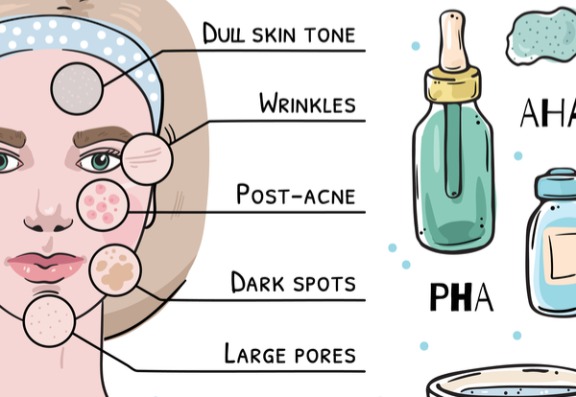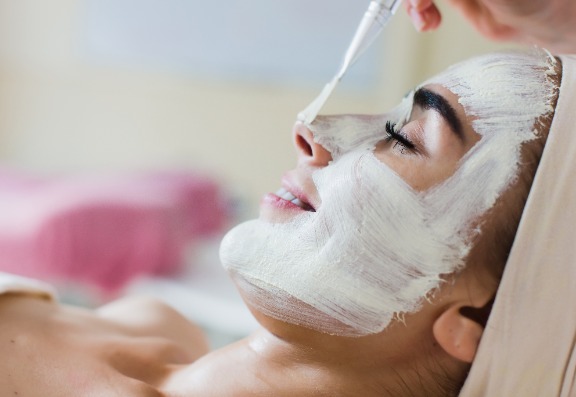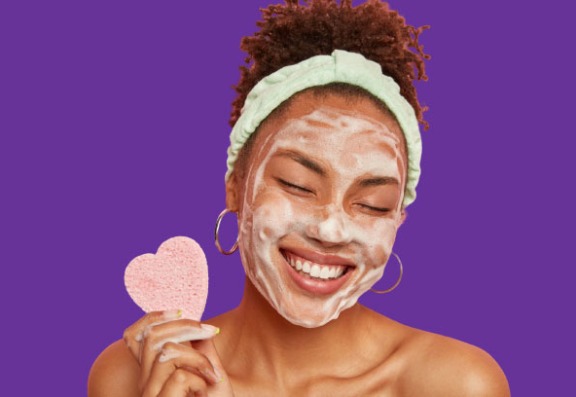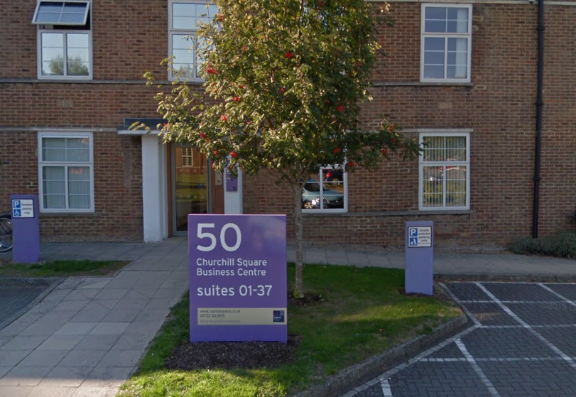Chemical Peel? Here’s What Happens To Your Skin...
More and more people are opting to enhance their appearance with a chemical peel.
The minimally invasive, inexpensive procedure smooths the skin, allowing for a revitalised, youthful look.
The recovery time for most chemical peels is short, and the benefits last a long time.
If you are considering this treatment, here’s what you need to know.
What is a chemical peel?
A chemical peel uses an acid solution applied to the skin to remove the outer layers that may be damaged or suffering from the signs of sun damage and environmental exposure.
The solution used during a peel contains an exfoliant and enzymes. Exfoliants may consist of a mild lactic or salicylic acid, while the enzymes are often of plant origin.
There are three different types of chemical peels: superficial, medium, and deep.
A superficial peel, which is only left on the skin for a few minutes, removes dead skin cells from only the top layer of the skin.
A medium peel also removes cells from the middle layer of skin. A deep peel is a more complicated process that may require anaesthesia. Superficial and medium peels pose fewer risks and are a good choice for the majority of candidates.
What kinds of skin issues can a chemical peel treat?
Our skin is the first line of defence against the environmental abuse caused by the sun.
The effects of sun damage include a rough, scaly texture, brown spots, and unsightly wrinkles.
A peel can improve fine lines, uneven pigmentation, and even small scars such as those caused by acne.
While a chemical peel cannot erase deep smile lines or “11’s,” it can greatly improve minor skin issues that arise as part of the ageing process.

How does a chemical peel work?
A chemical peel removes damaged skin cells from the epidermis and sometimes the dermis, and encourages the generation of healthy new skin cells.

Are there any precautions you should take after a chemical peel?
You may experience a bit of redness, flaking, and/or minor irritation after a chemical peel.
It’s important to avoid the sun during recovery, as the skin becomes more sensitive.
If you do have to spend time outside, apply a broad-spectrum sunblock liberally. I recommend that you should use this every day, summer and winter.
Sun exposure can negate the effectiveness of your treatment and cause new issues such as hyperpigmentation.
Be extra gentle with your skin after a peel, and avoid skincare products that contain alcohol or strong chemicals.
When will I need another chemical peel?
The effects of a light chemical peel last for a couple of months, while a medium peel may not need to be repeated for six to 12 months.
When you start to notice dullness to your complexion, it might be time to contact your skin professional to schedule a repeat treatment.

Thanks to the author of this blog Dr. Sophie Shotter who is the founder of Illuminate Skin Clinic, an award-winning private clinic offering an extensive range of the latest aesthetic, skincare, and wellness treatments.
Located in Kings Hill, Kent, the clinic was set up by Dr. Sophie Shotter in 2014 to provide the best advice, treatment, and service in all aspects of non-surgical aesthetic medicine.
Dr. Sophie offers a comprehensive range of treatments to help you look and feel your best.

If you want to read more, the experts at Consulting Room really know what they're talking about and have put together some Chemical peels, fine lines and wrinkles, pigmentation, scarring, acne, complexion improvement FAQs just for you.
If you have more questions, you can use the Chemical peels, fine lines and wrinkles, pigmentation, scarring, acne, complexion improvement questions feature to talk to our panel of trained medical experts.
If you're keen to get started with any of these treatments right away then you're in luck - those clever folks also have a list of trusted, accredited Chemical peels, fine lines and wrinkles, pigmentation, scarring, acne, complexion improvement clinics in your area.
A survey reveals that most people trust dermatologists far more than social media influencers, yet many continue to spend money on treatments that don’t work.
Belotero vs. Juvederm: They are two of the most popular fillers for lip augmentation, but which is the right one for you?
Croma’s latest range brings professional in-clinic results into your everyday routine. Clean, vegan, and packed with powerhouse ingredients, these products are designed to hydrate, brighten, protect, and fight early signs of ageing.
Hey, wait!
Before you go.....
Let's stay in touch, pop your details here and we'll send our editor's hand-picked updates on your fave subjects.